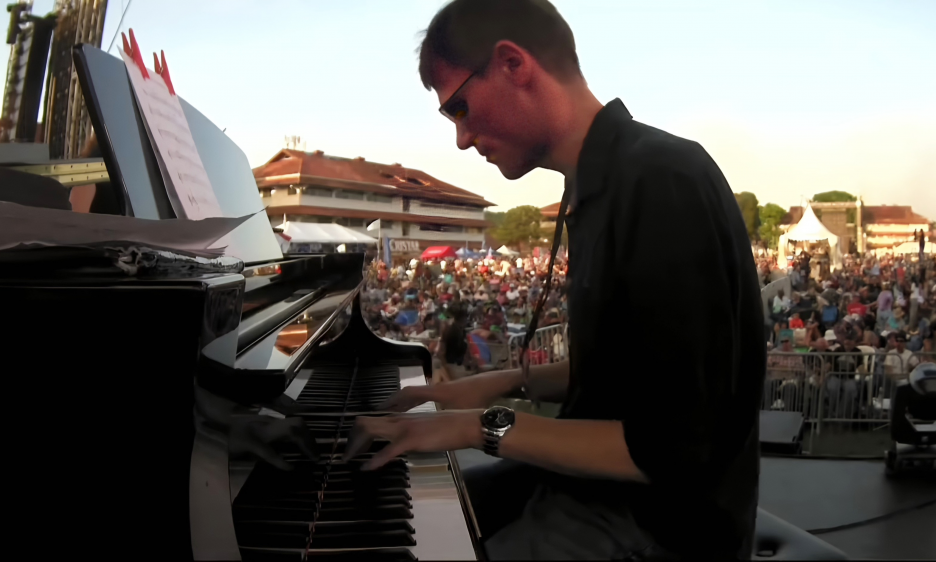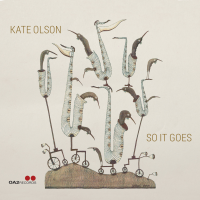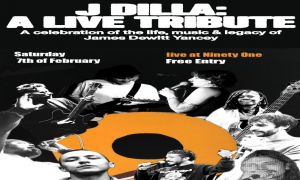If jazz is a city—endlessly rebuilt, its back alleys echoing with invention—then Pavle Zvekic is not merely wandering its streets, but laying down bold new thoroughfares through its neighborhoods. Award-winning Serbian writer Oto Oltvanji introduces a pianist who, at just 24, has become a gravitational force in the Balkan and international jazz scenes—equal parts visionary and architect.
If jazz is a city—endlessly rebuilt, its back alleys echoing with invention—then Pavle Zvekic is not merely wandering its streets, but laying down bold new thoroughfares through its neighborhoods. Award-winning Serbian writer Oto Oltvanji introduces a pianist who, at just 24, has become a gravitational force in the Balkan and international jazz scenes—equal parts visionary and architect.
The mythology usually reserved for prodigies sticks differently to Zvekic. His story begins not with the usual late-night piano discoveries, but as a nine-year-old boy stepping onto the stage of Serbia’s major Jazzik Festival—astonishing the audience as he unleashed organic rhythms and beatboxed entire ensembles with nothing but imagination. A star was born, and a voice mapping new territory for Balkan jazz in real time.
“I remember being ecstatic right before this festival debut,” smiles Zvekic. “I thought it would be my ‘big Bobby McFerrin moment.’ I had spent weeks practicing, trying to channel Bobby’s energy before the performance. But when I got on stage, I forgot everything. That’s how I learned, at 9, that imitation is only a tool to help you discover your own expression.”
But Zvekic’s meteoric definition of “early start” only sharpens from there. By age 11, he led Timebreakers—Serbia’s youngest-ever original band—on the stage of the legendary Omladina Festival, an institution whose history is woven with the very names that forged Yugoslav music culture. Playing an E7#9 “Hendrix chord,” weaving bebop lines through pop architecture, Zvekic marked Timebreakers not only as players, but as composers with a collective pulse. One critic noted: “Their phrasing was shockingly purposeful, never letting virtuosity overshadow groove—a rare balance at any age, rarer still for an 11-year-old director.”
Still in his teens, Zvekic’s band Iz Principa became a staple everywhere from the Nišville Festival to Budapest Jazz Club. By 17, while others endured final school exams, he was composing for the Serbian National Theater—established in 1854, the apex of his country’s artistic prestige. He scored acclaimed productions ranging from “Adventures with Carlson” to “Greta, Page 89” and the Neil Simon classic “The Odd Couple.” Each project proved Zvekic was equally at home writing for black-tied audiences as for underground jazz dives. “The National Theater gave me the chance to bring my jazz influences into a totally different setting,” said Zvekic. “Writing for the stage allowed me to mix structure and improvisation in new ways.”
Yet even with first prizes in Serbia’s most prestigious composition and piano competitions, standout performances at Days of Music, and a rare double victory at Donne In Musica—one of Europe’s most respected contests—Zvekic’s boldest achievement as a teenager might be founding the Youth Jazz & Rock Festival in Subotica. Launching an international event of this scale while still in high school is remarkable in itself, and even more impressive is that the festival is now in its ninth successful year and still growing. More than just another concert series, it’s become a real crossroads: Balkan and international artists meet, Berklee musicians introduce fresh ideas to Serbia, and new creative directions emerge between jam sessions and late-night conversations. It’s no surprise that visiting musicians like Marco Pignataro and Marko Djordjevic now call it a “pivot” for artistic exchange.
The Serbian jazz venues Zvekic transformed—Klein House, JMS, Bluz i Pivo—still buzz with the aftershock of his residencies, each space remade as a playground for young improvisers and cross-genre experimenters. He’s played his country’s grandest halls—Subotica City Hall, Deže Kostolanji Theatre—but also bent their formalities, selling out seats while slipping Balkan-folk lines into contemporary jazz improvisation, fixing one eye on the dancefloor and one on Stockhausen.
And now, Pavle Zvekic stands at the threshold of what promises to be a defining era—not just for himself, but for contemporary jazz. In the coming years, he is set to play a starring role on some of the world’s most distinguished stages. In 2026, Zvekic will take center stage as lead pianist of the Marco Pignataro Mosaic Quartet for two headline appearances as part of the renowned concert series at Boston’s legendary Scullers Jazz Club—a landmark institution whose stage has hosted extended major concert events by icons such as Herbie Hancock, Wynton Marsalis, and McCoy Tyner. Regularly recognized among the top jazz venues in America, Scullers’ annual programming remains a hallmark event in the international jazz community, attracting leading innovators from around the globe.
That same year, Zvekic will also appear as a featured headliner at the Boston Progressive Jazz Festival—an acclaimed event that, in just a few years, has earned praise from The Boston Globe and DownBeat Magazine as New England’s hub for boundary-pushing artists and a major platform for innovative jazz. Noted for its cutting-edge programming and roster of internationally acclaimed performers, the festival is widely seen as a premier stage for the new generation of jazz visionaries—a role in which Zvekic is exceptionally well suited.
Equally significant, Zvekic’s visionary presence will be felt at The Lilypad in Cambridge—revered by DownBeat and All About Jazz as one of the world’s elite jazz venues—where he will assume the roles of Lead Pianist and Music Director in Ethan Klotz’s much-anticipated multi-year residency. Here, Zvekic’s artistry will be at the core of a program that promises to push boundaries, set trends, and attract global attention. Each of these platforms signals more than individual achievement; together, they underscore Zvekic’s arrival as a major figure at the center of jazz’s international conversation.
Amid all the genres Zvekic has bent, the accolades downtown and uptown, the through-line remains clear: he is the most influential Serbian jazz artist of his generation, channeling the region’s turbulent, beautiful contradictions straight into the present tense of international jazz. And he is still only twenty-four.
And if jazz is a city—a fevered sprawl, equal parts demolition and dream—then Zvekic isn’t just a resident. He’s one of its next great urban planners, drawing new maps as the rest of us rush to catch up.
The mythology usually reserved for prodigies sticks differently to Zvekic. His story begins not with the usual late-night piano discoveries, but as a nine-year-old boy stepping onto the stage of Serbia’s major Jazzik Festival—astonishing the audience as he unleashed organic rhythms and beatboxed entire ensembles with nothing but imagination. A star was born, and a voice mapping new territory for Balkan jazz in real time.
“I remember being ecstatic right before this festival debut,” smiles Zvekic. “I thought it would be my ‘big Bobby McFerrin moment.’ I had spent weeks practicing, trying to channel Bobby’s energy before the performance. But when I got on stage, I forgot everything. That’s how I learned, at 9, that imitation is only a tool to help you discover your own expression.”
But Zvekic’s meteoric definition of “early start” only sharpens from there. By age 11, he led Timebreakers—Serbia’s youngest-ever original band—on the stage of the legendary Omladina Festival, an institution whose history is woven with the very names that forged Yugoslav music culture. Playing an E7#9 “Hendrix chord,” weaving bebop lines through pop architecture, Zvekic marked Timebreakers not only as players, but as composers with a collective pulse. One critic noted: “Their phrasing was shockingly purposeful, never letting virtuosity overshadow groove—a rare balance at any age, rarer still for an 11-year-old director.”
Still in his teens, Zvekic’s band Iz Principa became a staple everywhere from the Nišville Festival to Budapest Jazz Club. By 17, while others endured final school exams, he was composing for the Serbian National Theater—established in 1854, the apex of his country’s artistic prestige. He scored acclaimed productions ranging from “Adventures with Carlson” to “Greta, Page 89” and the Neil Simon classic “The Odd Couple.” Each project proved Zvekic was equally at home writing for black-tied audiences as for underground jazz dives. “The National Theater gave me the chance to bring my jazz influences into a totally different setting,” said Zvekic. “Writing for the stage allowed me to mix structure and improvisation in new ways.”
Yet even with first prizes in Serbia’s most prestigious composition and piano competitions, standout performances at Days of Music, and a rare double victory at Donne In Musica—one of Europe’s most respected contests—Zvekic’s boldest achievement as a teenager might be founding the Youth Jazz & Rock Festival in Subotica. Launching an international event of this scale while still in high school is remarkable in itself, and even more impressive is that the festival is now in its ninth successful year and still growing. More than just another concert series, it’s become a real crossroads: Balkan and international artists meet, Berklee musicians introduce fresh ideas to Serbia, and new creative directions emerge between jam sessions and late-night conversations. It’s no surprise that visiting musicians like Marco Pignataro and Marko Djordjevic now call it a “pivot” for artistic exchange.
The Serbian jazz venues Zvekic transformed—Klein House, JMS, Bluz i Pivo—still buzz with the aftershock of his residencies, each space remade as a playground for young improvisers and cross-genre experimenters. He’s played his country’s grandest halls—Subotica City Hall, Deže Kostolanji Theatre—but also bent their formalities, selling out seats while slipping Balkan-folk lines into contemporary jazz improvisation, fixing one eye on the dancefloor and one on Stockhausen.
And now, Pavle Zvekic stands at the threshold of what promises to be a defining era—not just for himself, but for contemporary jazz. In the coming years, he is set to play a starring role on some of the world’s most distinguished stages. In 2026, Zvekic will take center stage as lead pianist of the Marco Pignataro Mosaic Quartet for two headline appearances as part of the renowned concert series at Boston’s legendary Scullers Jazz Club—a landmark institution whose stage has hosted extended major concert events by icons such as Herbie Hancock, Wynton Marsalis, and McCoy Tyner. Regularly recognized among the top jazz venues in America, Scullers’ annual programming remains a hallmark event in the international jazz community, attracting leading innovators from around the globe.
That same year, Zvekic will also appear as a featured headliner at the Boston Progressive Jazz Festival—an acclaimed event that, in just a few years, has earned praise from The Boston Globe and DownBeat Magazine as New England’s hub for boundary-pushing artists and a major platform for innovative jazz. Noted for its cutting-edge programming and roster of internationally acclaimed performers, the festival is widely seen as a premier stage for the new generation of jazz visionaries—a role in which Zvekic is exceptionally well suited.
Equally significant, Zvekic’s visionary presence will be felt at The Lilypad in Cambridge—revered by DownBeat and All About Jazz as one of the world’s elite jazz venues—where he will assume the roles of Lead Pianist and Music Director in Ethan Klotz’s much-anticipated multi-year residency. Here, Zvekic’s artistry will be at the core of a program that promises to push boundaries, set trends, and attract global attention. Each of these platforms signals more than individual achievement; together, they underscore Zvekic’s arrival as a major figure at the center of jazz’s international conversation.
Amid all the genres Zvekic has bent, the accolades downtown and uptown, the through-line remains clear: he is the most influential Serbian jazz artist of his generation, channeling the region’s turbulent, beautiful contradictions straight into the present tense of international jazz. And he is still only twenty-four.
And if jazz is a city—a fevered sprawl, equal parts demolition and dream—then Zvekic isn’t just a resident. He’s one of its next great urban planners, drawing new maps as the rest of us rush to catch up.
For more information contact All About Jazz.





























